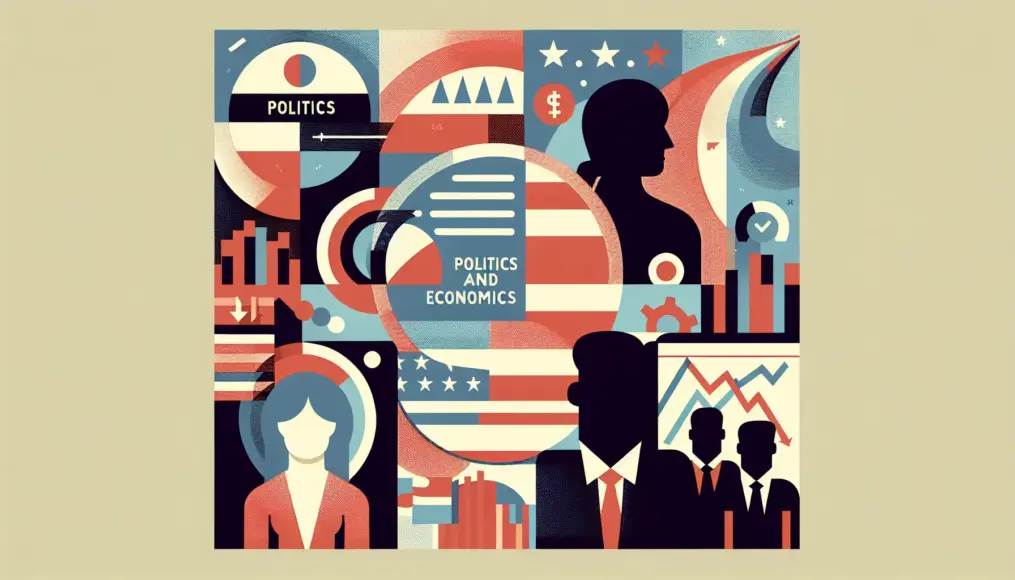Politics and ethics are deeply intertwined in our society, and Japan is no exception. The nation’s political landscape has been significantly shaped by its history and culture. As we look toward the future, exploring the intersection of politics and ethics becomes increasingly crucial. The leaders and policies we choose must be examined through an ethical lens.
In this article, we will delve into the relationship between culture and politics, consider Japan’s political scenario from a historical perspective, and unpack the ethical dilemmas that arise within political contexts. By bringing together diverse viewpoints, we hope to help pave the way for a better future.
- Examining the influence of culture on politics
- Reflecting on contemporary politics from a historical standpoint in Japan
- Discussing the importance of ethical leadership
The Intersection of Culture and Politics
Culture and politics are closely intertwined in our society. Culture influences political will and decisions, while politics serves as a force that shapes culture. In this chapter, we will delve into how culture impacts politics and how, in turn, politics shapes culture. This exploration will help us understand the relationship between politics and ethics, offering new perspectives for our future.
The Impact of Culture on Politics
Culture shapes the values and behaviors of a populace, which in turn reflects in their political choices. For instance, traditional Japanese culture and customs play a significant role in political decision-making. The cultural background of citizens is a crucial factor that policymakers must consider when formulating policies. Additionally, cultural movements and social trends possess the power to shape political agendas.
Thus, the influence of culture on politics is multifaceted and affects ethical judgments in the political arena. Investigating how the cultural values of a populace interact with policy choices and implementations will be key to understanding the intersection of politics and ethics.
- Examining the impact of culture on political will
- Exploring how Japan’s cultural background influences policy
- Unveiling the relationship between cultural movements and political agendas
The Process of Politics Shaping Culture
On the flip side, politics also has the power to shape culture. Policies, laws, and political decisions can act as catalysts for changes in societal values and cultural norms. Particularly, the dissemination of information through education and media is a vital means of altering the cultural perceptions of citizens. By promoting specific values through educational policies, the government can contribute to the future formation of culture.
In this way, the process of politics shaping culture significantly impacts society as a whole. From an ethical perspective, it is essential to carefully consider the effects of political decisions on culture. In this intersection of politics and ethics, reflecting on the path we should choose is crucial.
- Exploring how policies and laws influence culture
- Considering the role of education and media
- Clarifying the relationship between political decisions and cultural formation
Understanding Japanese Politics Through a Historical Lens
Japanese politics has undergone numerous reforms and transformations throughout its history. Notably, the political reforms following World War II have significantly influenced cultural and ethical perspectives, shaping the contemporary political landscape. In this chapter, we will explore how these post-war political changes impacted Japanese culture and the role of cultural elements in modern politics. By adopting a historical perspective, we can gain deeper insights into today’s political challenges and ethical dilemmas.
Post-War Political Reforms and Culture
In the aftermath of the war, Japan embarked on extensive political reforms aimed at establishing democracy. These reforms profoundly affected the cultural values of the nation and the structure of society. For instance, changes in the education system after the war transformed public consciousness and emphasized the importance of political participation. The spread of democratic ideals encouraged citizens to form their own opinions and take responsibility for political affairs.
Such reforms brought about cultural shifts that deepened citizens’ engagement with politics. Understanding the impact of post-war reforms on culture is crucial when considering the relationship between politics and ethics.
- We will examine the influence of post-war political reforms on culture.
- We will explore the significance of educational reforms and political participation.
- We will discuss shifts in public consciousness and ethical responsibilities.
Cultural Elements in Modern Politics
Even in contemporary Japan, cultural elements continue to play a vital role in politics. Particularly with the advancement of globalization, various cultures are intersecting, shaping political choices and policies. This has led to a diversification of public values and ethical viewpoints, which in turn influence political discourse.
Moreover, recent political developments and policy decisions cannot overlook the cultural contexts and social trends that underpin them. Politicians and policymakers are increasingly expected to understand the cultural backgrounds of their constituents and adopt approaches that resonate with those contexts. This fosters flexible thinking at the intersection of politics and ethics.
- We will explore the importance of cultural elements in modern politics.
- We will consider the impact of globalization on political landscapes.
- We will clarify how diverse values influence political discussions.
The Dilemma of Ethics and Politics
In the realm of politics, ethical judgment is always a necessity. However, it’s not uncommon for political decisions to clash with ethical considerations. This chapter explores specific scenarios where ethical judgment is required, as well as examples of conflicts between political decisions and ethics. Understanding the dilemma of ethics and politics is a crucial step towards making better policy decisions.
Scenarios Requiring Ethical Judgment
Politics often presents various situations that demand ethical considerations. For instance, when implementing policies, it’s essential to consider the rights and interests of those affected. Issues like environmental concerns and the welfare of socially vulnerable groups are particularly significant from an ethical standpoint. Balancing these factors poses a substantial challenge for politicians.
Additionally, maintaining transparency and fairness during elections and policy-making processes is also part of ethical judgment. To gain the trust of the public, political decisions must be grounded in ethical principles. Thus, ethical judgment plays a foundational role in politics.
- Examining the necessity of ethical judgment in politics
- Exploring the importance of considering environmental issues and the welfare of vulnerable populations
- Clarifying the role of transparency and fairness in political decisions
Cases of Conflict Between Political Decisions and Ethics
Throughout history, numerous examples exist where political decisions have conflicted with ethical considerations. For instance, there are instances where policies prioritize economic growth at the expense of environmental issues. This approach often entails chasing short-term gains while neglecting the ethical responsibility to build a sustainable society.
Moreover, there are cases where policies are influenced by pressure from specific interest groups or corporations, leading to decisions that go against ethical standards. In such situations, politicians face the arduous task of balancing the interests of the public with their own ethical beliefs. To resolve the dilemma between politics and ethics, processes that promote transparency and mechanisms that reflect the voices of citizens are essential.
- Analyzing cases of conflict between political decisions and ethics
- Exploring the relationship between short-term gains and a sustainable society
- Highlighting the importance of transparent processes
Cultural Perspectives for the Future of Politics
As we look to the future of politics, the evolution of culture is becoming an increasingly pivotal factor. With society becoming more diverse and values shifting, it is essential for political systems to adapt to these changes. In this chapter, we will explore how cultural transformations impact politics and examine the significance of ethical leadership in shaping the political landscape ahead. By embracing cultural perspectives, we can chart a path toward a better future.
Cultural Change and Political Adaptation
In today’s world, culture is changing at an unprecedented pace. As these changes occur, politics must respond with agility. Globalization and technological advancements are particularly influential, profoundly affecting the values and lifestyles of citizens. Politicians must understand these cultural shifts and develop policies that reflect this understanding.
Moreover, as our societies become increasingly diverse, it is crucial to respect differing values and adopt inclusive approaches. By adapting to cultural changes, politics can gain public trust and implement more effective policies. Thus, the interplay between culture and politics will become an increasingly significant theme in the society of tomorrow.
- Examining the impact of cultural change on politics
- Exploring the challenges posed by globalization and technological progress
- Highlighting the importance of inclusive approaches
The Importance of Ethical Leadership
In the future of politics, ethical leadership will be indispensable. To earn the trust of the public, politicians must embody ethical values and demonstrate transparent behavior. A sincere commitment to addressing social and environmental issues is particularly vital. Ethical leadership fosters a sense of responsibility towards citizens and deepens their understanding of politics.
Furthermore, effective leadership must incorporate mechanisms that reflect the voices of the citizens. By promoting civic participation and valuing diverse opinions, better policies can emerge. In this way, the role of ethical leadership in shaping the future of politics is immense.

If you found this article intriguing, you might also enjoy “Exploring the Diversity of Value Judgments Shaped by Culture.” This piece delves into how culture influences value judgments, examining the processes of value formation and ethical dilemmas. Understanding the connection between culture and value judgments is crucial for contemplating the future of politics.
- Investigating the necessity of ethical leadership
- Considering the importance of actions that build public trust
- Clarifying the significance of mechanisms that promote civic participation
Conclusion
In this article, we delved into the intricate relationship between politics and ethics in Japan. From the intersection of culture and politics to historical perspectives, ethical dilemmas, and visions for the future, we explored various angles that provide us with the knowledge and understanding necessary to build a better society.
What stands out as particularly important is the role of ethical judgment in politics. When politicians demonstrate ethical leadership and earn the trust of their constituents, it paves the way for a healthier society. As we look to the future of politics, adapting to cultural changes and embracing a proactive leadership style will be essential.
- Culture and politics are closely intertwined, influencing each other significantly.
- Ethical judgment plays a crucial role in political decision-making.
- Future politics will require ethical leadership and active citizen participation.
Each of us has the power to engage with politics and take action, helping to create a brighter future. We’d love to hear your thoughts and opinions in the comments, inspired by this article.



Comment